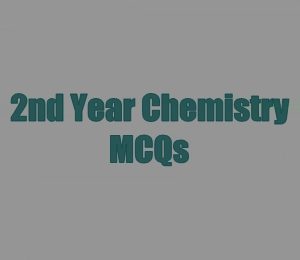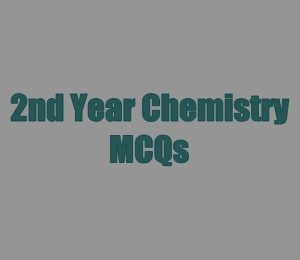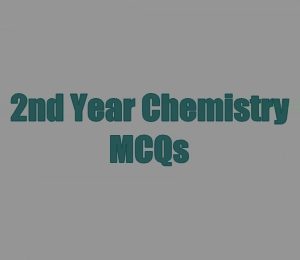For the preparation for the entrance test, you can get 2nd Year Chemistry Chapter 6 MCQs Transition Elements with Answers here. This is an important chapter and you can get its MCQs here. The transition elements are those that have partially filled d or f-subshells in atomic or in any other oxidation states. The d and f block elements are called transition elements. They have a specific electronic configuration and general characteristics. They have specific properties. There are some compounds made through chemical reactions that are called complex compounds and they have specific components. Then the importance of iron and steel with the concept of Corrosion. So, let’s start preparing for this chapter here.
2nd Year Chemistry Chapter 6 MCQs Transition Elements with Answers
880



